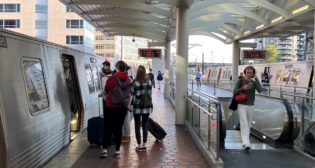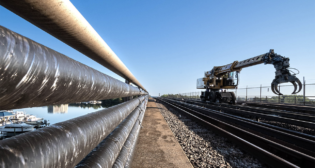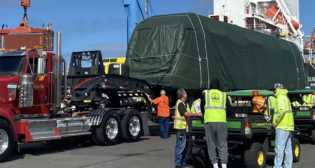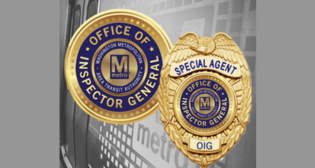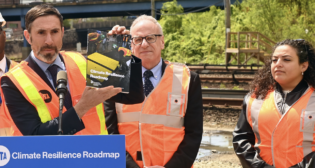
WMATA Addressing ‘Pressing’ Problem
Written by William C. Vantuono, Editor-in-Chief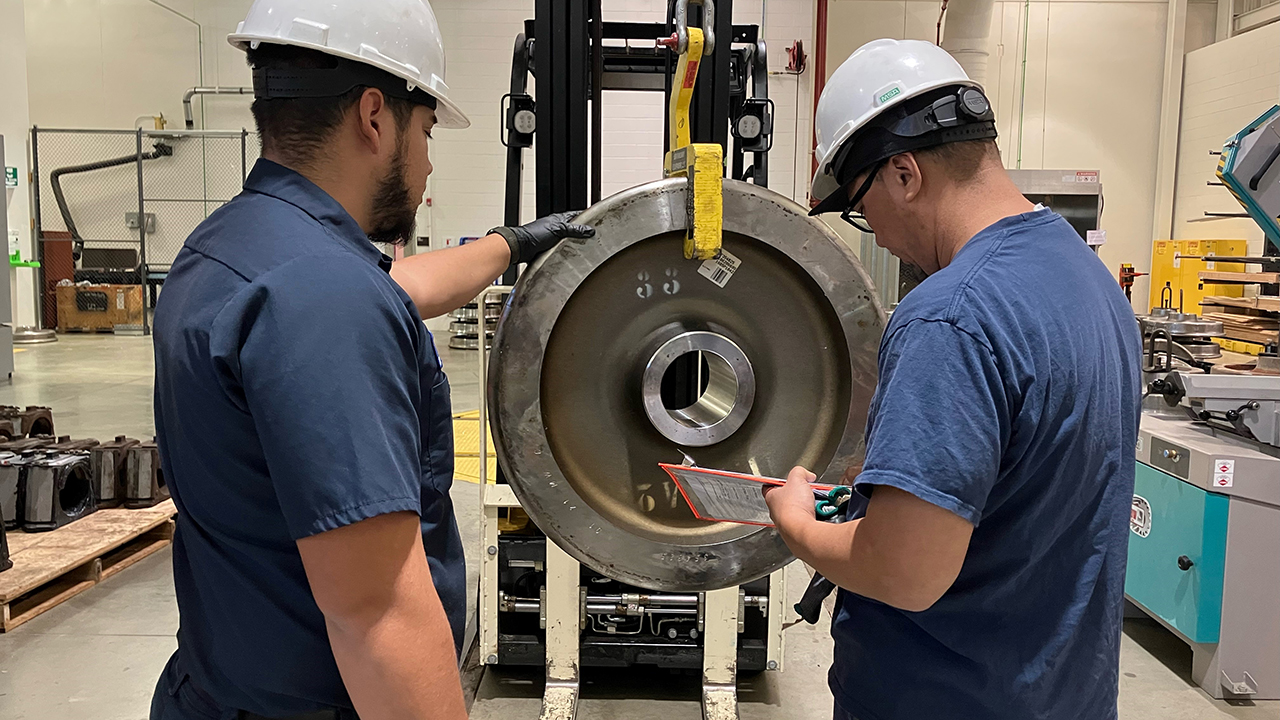
WMATA photo.
The Washington Metropolitan Area Transit Authority (WMATA) has begun a wheelset retrofit program on its problematic 748-unit Kawasaki Rail USA 7000-series railcar fleet to return them to service and resume a “normal” maintenance schedule. The fleet has been out of service for about two years following a late-2021 derailment.
With Washington Metrorail Safety Commission (WMSC) approval, WMATA has begun replacing the wheels on all 7000-series railcars “under new, higher standards,” increasing the fit and press tonnage used to mount wheels to their axles on the railcar. Metro developed program plan “following extensive engineering and data analysis and based on a technical report issued by the National Transportation Safety Board (NTSB) citing engineering experts who identified a technical issue—microslip due to reduction in contact pressure—as a factor in the [railcars’] wheel migration problem,” the agency said. “The work requires specialized equipment, customized and calibrated to Metro-specific production requirements and involves significant training to perform. Pressing the wheels is an exhaustive process that requires 72 hours of work for each [married] pair of railcars.”
After the wheels are pressed, the railcars undergo up to 30 hours of inspections before going into passenger service. After 20, 000 miles, a follow-up engineering analysis will be conducted that involves removing the wheelsets and disassembling them for additional inspection, wheel measurements and engineering analysis prior to return them to standard periodic inspection intervals. Under this plan, WMATA continues to inspect 7000-series railcars at 30-day intervals, “limiting the number that can operate due to inspection frequency.”
WMATA said it expects to complete approximately 20 cars a month “once the wheel pressing process and training ramps up. With 748 railcars, including 5,984 wheels on 2,992 axles, it is expected to take several years to return the entire fleet to normal service, at an estimated cost of $55 million.”
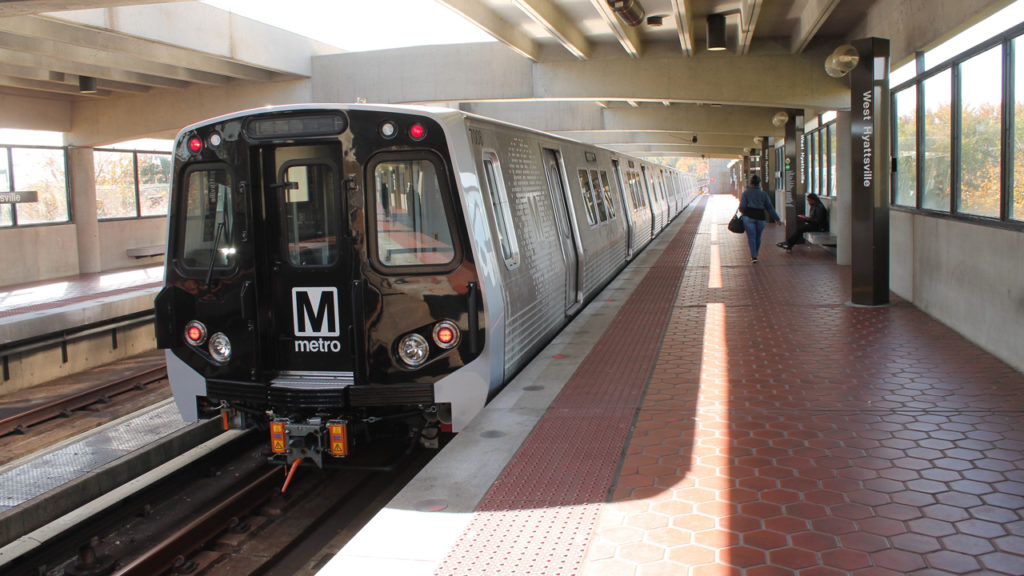
Due to two-year-old shortage of 7000-series equipment, which comprises roughly 60% of its fleetm WMATA said it “continues to utilize its oldest, least-reliable railcars in the legacy fleet. As more 7000-series railcars are completed, tested and able to run longer between inspection intervals, we will gradually be able to increase the number in service, providing customers with more reliability and comfort. This will allow us to eventually remove the older, legacy railcar fleet from service.”
“We appreciate the tireless efforts of our safety and maintenance teams to develop this process to ensure we can safely return more 7000-series railcars to service, which are the newest and most reliable in our railcar fleet,” said Metro General Manager and CEO Randy Clarke. “It will take an extensive amount of work over the next few years, but as we begin to have more available, customers will begin to see even more improvements in reliability and service.”
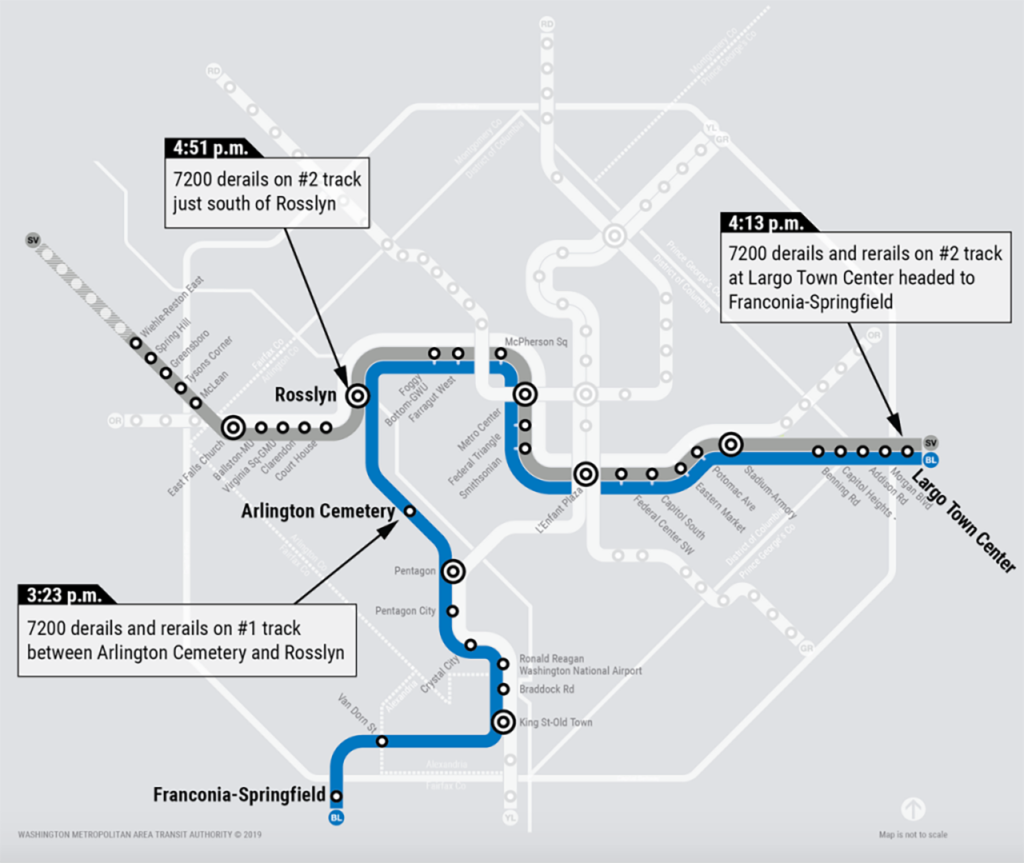
The first 7000-series railcars with repaired wheelsets entered passenger service Dec. 4. The derailment that caused them to be withdrawn from service occurred Oct. 12, 2021 when car 7200, one of eight on train 407, occurred at 4:51 p.m. between the Rosslyn and Arlington Cemetery stations on the Blue Line. WMATA began returning half the fleet to service in mid-December 2021 under a “metered release” plan approved by the WMSC. However, later that month, the agency paused that plan. On December 29, the WMSC ordered WMATA to pull all 7000-series cars, the second time in as many months. The fleet was out of service all of 2022. In May 2023, the agency said it expected the 7000-series to resume service by the end of the summer, following a March 2023 announcement of the wheelset pressing and inspection program now under way.
